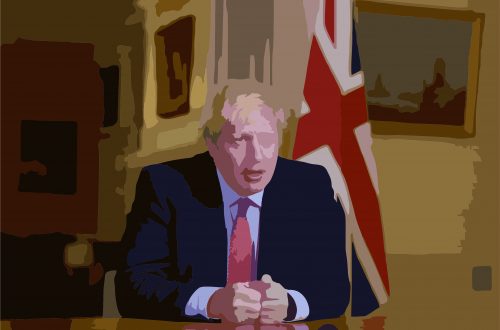In the light of the murders in Suffolk, Mary Ann Sieghart argues a strong case in today’s Times for making addictive drugs available on prescription to addicts:
If you are a desperate drug addict and you are neither a trust fund babe nor a doctor with a prescription pad, you really have only three ways to pay for your habit: you steal, you deal or you sell your body. For those poor young women who have too many scruples to steal or deal, prostitution is often the only answer. Some 95 per cent of prostitutes, according to a Home Office study, are what they call “problematic drug users”.
Drug addiction is a medical condition; it should not be treated as a criminal offence. The crime that results from drug addiction is a direct result of the drugs’ illegality. The organised criminal gangs, with their violence, corruption and money laundering; the street gangs, with their gun crime, stabbings and intimidation; the muggers, burglars, car thieves and shoplifters, who steal to fund their habit; the dealers who try to create new addicts; and finally, the prostitutes who put their health and lives at risk; all this crime and suffering could be wiped out if the drugs were available, free, on prescription. Some 50 to 80 per cent of prisoners are in jail for crimes related to raising money to buy drugs. Nearly half of women prisoners are there specifically for drug offences and nearly three-quarters have had a drug problem. The cost to the criminal justice system is huge. The cost to the individuals, their families and wider society is greater still.
In European cities, where heroin is available on prescription, property crimes by drug-users have dropped by as much as a half. And think of the effect that widespread prescribing would have on turf wars, gang violence, gun crime, street dealing and prostitution… Billions of pounds spent enforcing prohibition and coping with its consequences would be saved. Hundreds of thousands could be treated as patients rather than criminals. The number of drug-related deaths would fall dramatically. And desperate young women could be rescued from pimps, potential rapists and murderers.
To me this seems like a no-brainer. I’d prefer people not to take drugs like heroin or crack, but if they must then I’d rather they were available on prescription, so that addicts no longer had to commit crimes to fund their habits.
A.N. Wilson in the Daily Mail appears, initially, to agree. While blaming “a maniac” for the deaths in Suffolk, he adds that “in a broader sense, the guilt for these deaths rests with those who have allowed the women to become dependent upon hard drugs”. And showing an uncanny insight into the reasons why women become prostitutes, he explains to the Mail’s readers that the victims “were not out on the streets because they were attracted to their clients. They were there, on the cold, seedy pavements of downtown Ipswich, because they were desperate, not for sex, but for drugs”.
Being a writer for the Mail, however, Wilson is less interested in finding a solution to this than in finding someone to blame. And that someone is to be found among “the stars of rock music, television and the fashion industry”:
What kind of message does the shallow and irresponsible fashion industry give out when, a year after those grainy pictures appeared of Kate Moss snorting cocaine, she is earning more than ever and was named Model of the Year at the British Fashion Awards?
The truth is that the man who has set out to strangle young women in Ipswich is not their only murderer. Up in the dock beside him, when he is caught and stands trial, should be not only the dealers and pushers who helped these unfortunate young women to develop their drug dependency – it would also be good to see every celebrity who has sought to glamorise drug-taking by blatant and exhibitionistic use of illegal substances. For they, too, have the blood of these young women on their hands.
It’s unclear how exactly one might go about framing a law that would allow the prosecution of Kate Moss for “glamorising” drug use. Would a less glamorous celebrity drug user – Michael Barrymore, perhaps – be held less culpable? Would a jury really be convinced that, beyond reasonable doubt, she was in fact also guilty of murder? And is it really reasonable to pin this kind of blame on someone’s private behaviour, when it would have remained private had certain dysfunctional, prurient, curtain-twitching tabloids not chosen to call her “Cocaine Kate” and put her on their front page? Still, a reminder of the Mail’s shameless hypocrisy is always welcome.
On a similar subject, I think that the point of today’s effort from award-winning Times cartoonist Peter Brookes is to criticise successive governments’ policy on prostitution. I hope so.


